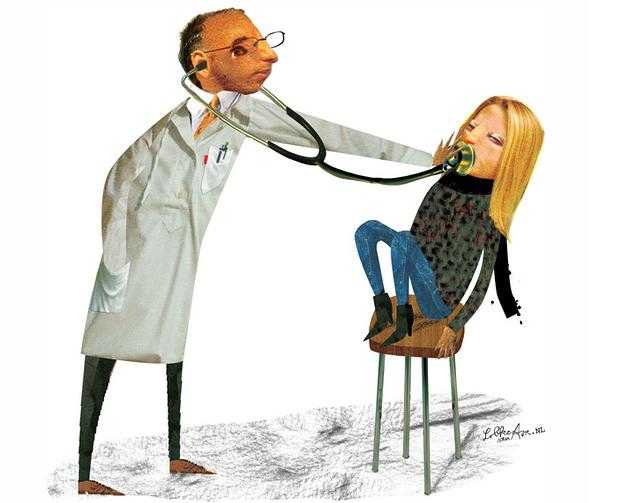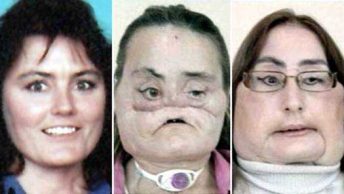
Going straight to the emergency room seems like the most prudent thing to do in case of a health issue. It could be bleeding during pregnancy or a tingling sensation on the right side of the body or something else.
Why do these emergency visits leave several patients with a deep sense of regret for the rest of their lives?
Studies show that hundreds of patients fall prey to wrong tests and surgeries each day at hospitals around the United States. A surgery or tests are performed on the wrong patient due to mistaken identity or a surgery is performed on the wrong body part.
Let’s take the example of Kerry, who noticed bleeding when she was in the early months of pregnancy and arrived at an emergency room to get herself checked. Soon after, a nurse took her for a CT scan. Kerry was apprehensive and asked the nurse if that needs to be done, and the nurse replied that those were the doctor’s orders and a CT scan of the abdomen is needed.
After the scan, the emergency room physician along with a couple of radiologists came into the room and told her that they made a mistake. That the CT scan was to be done on another patient with the same first name.
Although, no large studies have been done on the side effects of a CT scan on a pregnant woman, experts say that a fetus, when exposed to radiation, can sometimes develop mental and physical growth abnormalities.
Doctors also explained to Kerry that the baby could suffer mental retardation, low IQ or even growth problems because of exposure to radiation.
Wrong Surgeries Performed In Hospitals
This may sound unusual for many of you but this is certainly not a rare case. It happens all the time at hospitals.
According to the Joint Commission accrediting the hospitals, procedures on the wrong patient, wrong side and the wrong site happen more than 40 times each week in hospitals in the United States.
Several wrong surgeries take place in the hospitals here. One such case involved a child who went in for an eye surgery and the surgeons took out the tonsils because of a confusion with another patient. Another child underwent a cleft palate surgery on the wrong side of the mouth. Yet another patient who went in for neurosurgery had holes drilled on the wrong side of the head. Towards controlling this menace, state regulators in some states brought out a rule that video cameras be installed in all operating rooms at the hospital.
Does This Make The Hospitals Bad?
While experts are of the opinion that such errors don’t make the hospital bad and people continue to flock there for surgeries; from the common man’s perspective, it can be quite scary.
Kerry says that doctors were very nice and apologetic after the incident. The pregnant emergency room doctor cried and apologized to her and her husband. They even asked what flowers she liked and offered free hospital cafeteria coupons. It is all understandable and the doctors may even be forgiven, until something goes drastically wrong.
Kerry’s baby, at 3 months of age, had a head circumference in the 73rd percentile, and at 1 year, it was in the fifth percentile. If the percentile does not say in the same range, it is considered to be a bad thing for the child’s growth.
A crying Kerry said that she expected doctors to know what they were doing and that she didn’t know anything.
Keeping Yourself Safe From Hospital Mistakes
But not knowing anything cannot be an excuse any longer, because ultimately it is the patients who suffer throughout their lives. This gives us all the more reason to be better informed and knowledgeable about hospital procedures and not to think that doctors can do no wrong. It is our bodies and our lives after all!
Patient empowerment is very important and is a step forward to ensure things don’t go wrong.
Here are some tips given by experts to keep yourself from falling victim:
Give Your Name, DOB and Surgery – Give your name, date of birth and the surgery you are there in the hospital for, to every doctor, technician or nurse who takes care of you, even when you enter the surgery room.
Get Them To Check Your ID – You must understand the hospital staff have to confirm the patient’s identity in at least two ways. One is to check your ID and the other is to ask for your name and date of birth. Insist on them checking your ID bracelet.
Find Out What Procedure You Are Having And On Which Side? – Even if you are in the hospital for a right eye surgery and the nurse confirms that, you must remember that the nurse will not go into the operation theater with you. Insist on confirming the procedure and the side of the body before they give you anesthesia and cut the wrong part.
Marking The Surgical Site – Many hospitals have implemented the method of asking their patients to mark the site where they would be having the surgery. You can insist on marking the surgical site with the surgeon present in the operating room and not just in front of the nurse or someone else.
Be Very Clear About Your Personal Details – Many a time, patients tend to keep quiet even if the nurse or doctor pronounce the name wrong or give a wrong last name, thinking that they just made a mistake. You cannot afford to do that. Correct them immediately and make sure they correct it in the chart, if it’s written wrong.
The general attitude of people is that getting to a hospital is their sole responsibility as doctors take care of the rest. This is just not the case and you will have to keep your eyes and ears open at all times during your hospital stay; especially when you’re undergoing a surgery or some diagnostic tests.
Being aware that hospitals do go wrong and surgeons do make huge “irreparable” mistakes can help you avoid becoming one of the victims of hospital mistakes.












